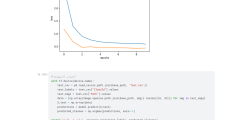خلال الأشهر القليلة الماضية، شهدت الساحة التقنية تطورات مذهلة في مجال النماذج اللغوية الخفيفة، خصوصًا تلك القادمة من مختبرات جوجل وميتا ومِستْرال وغيرها. واحدة من أبرز هذه القفزات تمثلت في إطلاق نموذج جيما 3 بإصداراته المختلفة، والتي تقدم مستوى أداء كان حتى وقت قريب حكرًا على النماذج الضخمة التي تتطلب موارد باهظة.
في هذه التدوينة، أشارك خلاصة تجربة عملية مع نسخة خفيفة من نموذج جيما، ثم أطرح رؤية حول كيف تغيّرت متطلبات الاستثمار الأولي لمشاريع الذكاء الاصطناعي الفعلي، ولماذا أصبح التنفيذ السريع والجودة العالية هما الفيصل، لا مجرّد الفكرة.
في إحدى التجارب الأخيرة، قمتُ بعملية ضبط دقيق لنسخة خفيفة من جيما 3، استهدفتُ بها مهامًا حوارية وتحليلية مركّبة. والنتيجة؟ أداء متماسك وسريع في إنتاج استجابات دقيقة وواقعية، تكاد لا تميّز عن مخرجات نماذج ضخمة من حيث الجودة.

المدهش في الأمر أن الحصول على نتائج مشابهة كان مستحيلًا في مطلع هذه السنة باستخدام أي نموذج لغوي يقل حجمه عن 14 مليار معلمة. أما اليوم، فباستخدام نسخة خفيفة (حوالي 7 مليار معلمة فقط)، يمكن بلوغ أداء مثير للإعجاب بموارد محدودة.
سؤال.. هل نحتاج حقًّا إلى 24 جيجابايت؟ التجربة تُثبت العكس
النسخة الأكبر من هذا النموذج (جيما ذات 27 مليار معلمة) تعمل بدقة نقطية مزدوجة (16 بت)، وتوصي جوجل بتشغيلها على بطاقة رسومية لا تقل عن 24 جيجابايت. غير أنني تمكّنت من تشغيلها على بطاقة ذات ذاكرة 15 جيجابايت، مع بعض البطء في توليد الإجابات.
وعند استعمال بطاقة برسومية بسعة 32 جيجابايت أو أكثر، يعمل النموذج بسلاسة مثالية، خاصة في الحالات التي لا تتطلب استجابات فورية، مثل التحليل النصي أو التوليد الدفعي للبيانات.
هذه التجربة تؤكد أن العتبة الدنيا للتشغيل تتراجع، وأن المشاريع الجادة لم تعُد رهينة بمراكز بيانات كبرى، بل يمكن تنفيذها بأجهزة شخصية قوية نسبيًا.
قمت أيضًا بتجربة نسخة جيما 3ن، الموجّهة للأجهزة المحمولة. وهي نسخة خفيفة صُمِّمت لتعمل على هواتف ذكية أو حواسيب لوحية. ورغم أنني لم أقم بضبطها بعد على بيانات مخصصة، إلا أن النتائج الأولية تبدو مشجعة، وتُشير إلى مستقبل واعد للذكاء الاصطناعي المحمول.
أنوي إدماج هذه النسخة قريبًا ضمن منظومة التفاعل الآلي في منصة فِكران، لاختبار قدرتها على إسناد النقاشات الحوارية والمعرفية بين المستخدمين والنماذج اللغوية.
كل هذه المؤشرات تدفعني للتأكيد على قناعة تتبلور يومًا بعد يوم:
لبناء مشروع ذكاء اصطناعي قادر على تغطية تكلفته خلال أشهر قليلة، كل ما تحتاجه هو:
– أربع بطاقات “آر تي إكس أ6000” (أو ما يعادلها من حيث الأداء)
– ومسوق بارع يُجيد صياغة القصة وتوجيهها للجمهور المناسب
ولا أقول ذلك تبسيطًا أو تجاوزًا، بل توصيفًا دقيقًا لما أصبح واقعًا عمليًا في مشاريع الذكاء الاصطناعي المستقلة، بعيدًا عن مظاهر التهويل أو التعقيد الاصطناعي.
الكثير من الشركات التي ترفع شعار “الذكاء الاصطناعي” تعتمد كليًّا على واجهات برمجية خارجية دون أن تملك أدنى بنية تشغيلية داخلية. وفي واقع الأمر، لا يتجاوز دورها إعادة تغليف استجابات تلك الواجهات وبيعها تحت مسمى مختلف.
المستقبل ليس للاستهلاك، بل للإنتاج. والبقاء سيكون لمن يملك القدرة على تطوير المعرفة وتكييفها محليًا.
ليست الأفكار ما ينقصنا…
ما ينقص الساحة ليس “الفكرة”، بل التنفيذ الفعّال.
كم هائل من المشكلات بحاجة ماسة إلى حلول ذكية:
- الترجمة الدقيقة للغات المهمّشة.
- أدوات التحليل الفوري للنصوص القانونية والسياسية.
- تدريب النماذج الصوتية على لهجات محلية.
- أتمتة الإجراءات الإدارية في مؤسسات عمومية.
لكنَّ السؤال الأهم:
هل تمتلك القدرة على تنفيذ هذه الحلول بجودة عالية وفي وقت معقول؟ وهل تعرف كيف تُقدّمها للسوق بطريقة تُقنع؟
إن كانت الإجابة نعم، فالمجال مفتوح، والدعم المالي لن يكون عائقًا كبيرًا.
ما أترقبه: نموذج يعمل على المعالج فقط
أكثر ما أنتظره الآن هو أن يظهر نموذج لغوي فعّال يمكن تشغيله على وحدة المعالجة المركزية مباشرة، دون حاجة إلى بطاقة رسومية، ودون استهلاك مفرط للذاكرة.
حين يتحقق ذلك، سيصبح بالإمكان بناء أنظمة ذكاء اصطناعي كاملة محليًّا، دون اتصال سحابي، ودون اشتراكات دورية.
وقتها فقط، سيكون بوسع الأفراد والمؤسسات الصغيرة الدخول الحقيقي إلى عالم الذكاء الاصطناعي السيادي، حيث المعرفة تُدار من الداخل، ولا تُستورد جاهزة من الخارج.
وحتى أوضح البُعد الاستراتيجي الذي أرمي إليه، أن ما نشهده الآن هو تحوّل جذري؛ من نماذج عملاقة لا تعمل إلا في مراكز البيانات، إلى نماذج خفيفة وعالية الأداء تُشغَّل على الحواسيب الشخصية.
لم يعُد المشروع الناجح يتطلب تمويلًا ضخمًا، بل فقط أدوات مناسبة، وفهمًا حقيقيًا للسوق، وقدرة على تحويل الفكرة إلى تنفيذ فعّال.
هل تملك العتاد؟ هل تملك الفكرة؟ هل تملك رؤية تسويقية واضحة؟
إذا كانت الإجابة نعم، فأنت في المكان المناسب، والوقت الآن.
والله الموفق لكل خير.

 لديك مشروع أو سؤال؟ تواصل معي
لديك مشروع أو سؤال؟ تواصل معي








